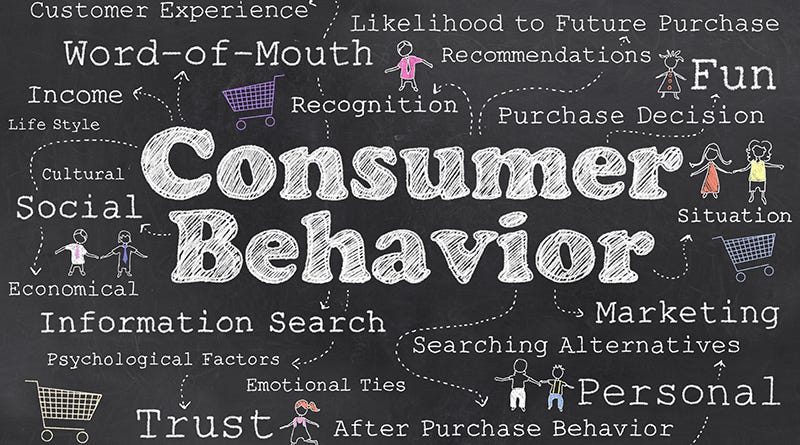
Which Type of Consumer Are You?
We all have our preferences and choices when it comes to what we spend our money on. What entices you to purchase something? Businesses spend millions of pounds on advertising to influence your buying decision. Let’s find out if any of it has an impact on you as a consumer.
The Power of Marketing
There is a method to persuasion and businesses use it to their advantage to understand and influence you. Through observation and analysis, brands feed us messages constantly to ensure that their marketing affects consumer behaviour. Whether subliminally or consciously, if we’re consuming anything that means the messages are working!
Effective marketing campaigns drive us to make a choice and act upon it. Brands tap into our emotions to get us to react and put those feelings into transactions. Our consumption habits and attitudes evolve constantly, but most of us fall under the below consumer traits during our lifetime. Which one are you?
The Patron
Many of us are loyal consumers simply because we’re creatures of habit. You like certain things a certain way and end up consuming the same products and services for years, simply because you’ve become comfortable with it. 77% of consumers hold long-term relationships with brands that last 10 years or more. This is true for 60% of millennials too, despite being on the younger end of the consumer spending age.
We like a routine and we are happy to stick with what makes us happy. If a brand is consistent in its delivery and gives you satisfactory service, you don’t have a reason to look elsewhere. You are the loyal patrons of a business. Examples include groceries, toiletries, cigarettes and personal care.
The Deal Hunter
Are you always looking for a good bargain?
Do your friends go to you for the best deals in town?
Is ‘sort by lowest price’ your default filter when online shopping?
If you answered yes to these 3 questions, then you’re definitely a deal hunter. True bargain hunters know how to spot a deal, compare prices and haggle when necessary. Brand names and trends don’t sway you as much as good value for money does. This does not mean you don’t know what’s trending – you keep track of latest developments and make sure you get your hands on them as soon as prices drop or when they’re on offer. The discount aisle of the supermarket and Black Friday sales are your favourite sections to browse.
The Impulsive One
If you don’t think twice before purchasing something, don’t worry, you’re part of 78.2% of British adults who shop online on impulse. We all love browsing and window shopping and more than 1 in 5 of us make impulsive purchases on a weekly basis.
It is easier to splurge on a whim when we are online than in-store because of the convenience and wide variety of choice. You make quick decisions and don’t like to waste too much time on shopping and consumption. You prefer to use your energy elsewhere and enjoy acting on impulse. Some top impulse buys include clothes, food, shoes, jewellery and home accessories.
The Researcher
When it comes to large purchases and high-ticket items, you’re most likely going to take your time and research your best option before spending money on it. Products like mobiles phones, cars, laptops, watches, cameras and furniture are not frequent purchases for a majority of us. We want to compare prices, benefits and services between competitors, and within a brand as well, to make sure a well-informed decision is made.
Similarly, the tactful consumer is related to the researcher, as you would spend only on a need-based situation. When was the last time you bought light bulbs or an addition to your toolbox? It’s probably come up only when you found the need for it.
We become research and need-based consumers many times during our buying life cycle. It can also depend on the season and our calendar. We would purchase back-to-school items just before the new school year, a new coat for winter and gifts for when we have an event to attend.
So, which one are you?
It’s okay to be a mix of these consumer types at different stages of your life. Identifying where we are in our buying cycle and what we can expect next can help us take control of our consumption habits.
Keep your eyes and ears open to your surroundings and pay attention to what brands are feeding you. Consumerism is designed to entice us and keep the economy running. It’s completely normal to get influenced by marketing and trends around us and many of us could use the extra push!
